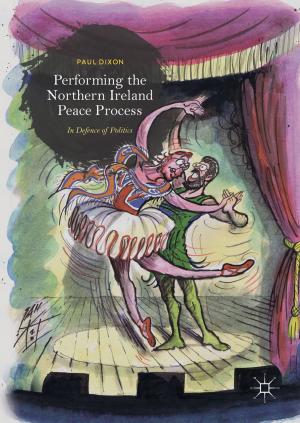The Strange Persistence of Universal History in Political Thought
Nonfiction, Social & Cultural Studies, Political Science, International, International Relations, Politics, History & Theory| Author: | Brett Bowden | ISBN: | 9783319524108 |
| Publisher: | Springer International Publishing | Publication: | March 24, 2017 |
| Imprint: | Palgrave Macmillan | Language: | English |
| Author: | Brett Bowden |
| ISBN: | 9783319524108 |
| Publisher: | Springer International Publishing |
| Publication: | March 24, 2017 |
| Imprint: | Palgrave Macmillan |
| Language: | English |
This book explores and explains the reasons why the idea of universal history, a form of teleological history which holds that all peoples are travelling along the same path and destined to end at the same point, persists in political thought. Prominent in Western political thought since the middle of the eighteenth century, the idea of universal history holds that all peoples can be situated in the narrative of history on a continuum between a start and an end point, between the savage state of nature and civilized modernity. Despite various critiques, the underlying teleological principle still prevails in much contemporary thinking and policy planning, including post-conflict peace-building and development theory and practice. Anathema to contemporary ideals of pluralism and multiculturalism, universal history means that not everyone gets to write their own story, only a privileged few. For the rest, history and future are taken out of their hands, subsumed and assimilated into other people’s narrative.
This book explores and explains the reasons why the idea of universal history, a form of teleological history which holds that all peoples are travelling along the same path and destined to end at the same point, persists in political thought. Prominent in Western political thought since the middle of the eighteenth century, the idea of universal history holds that all peoples can be situated in the narrative of history on a continuum between a start and an end point, between the savage state of nature and civilized modernity. Despite various critiques, the underlying teleological principle still prevails in much contemporary thinking and policy planning, including post-conflict peace-building and development theory and practice. Anathema to contemporary ideals of pluralism and multiculturalism, universal history means that not everyone gets to write their own story, only a privileged few. For the rest, history and future are taken out of their hands, subsumed and assimilated into other people’s narrative.















